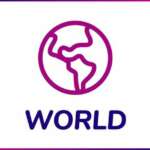A Closer Look at Germany
Germany Flag

Germany Formation Date
October 3, 1990
Germany Capital Name
Berlin
Germany Neighbours
Exploring Germany
Discover the Wonders of Germany: A Cultural Commentary and Travel Guide
Germany, a country located in central Europe, is a land of rich history, vibrant culture, and breathtaking landscapes. Known for its technological advancements, strong economy, and love for beer, Germany has become a popular destination for travelers from all over the world. In this article, we will delve into the various aspects that make Germany a unique and fascinating country.Key Takeaways:
- Germany is located in central Europe and is bordered by nine countries.
- The name "Germany" is derived from the Latin word "Germania" which means "land of the Germans".
- Germany is known for its diverse landscapes, ranging from mountains to forests to beaches.
- The country has a rich history dating back to ancient civilizations and has played a significant role in shaping modern Europe.
- Germany has a federal parliamentary system of government with 16 states.
- The German economy is one of the strongest in the world and is driven by various sectors such as manufacturing, technology, and tourism.
- The population of Germany is around 83 million people, with a diverse mix of ethnicities and religions.
- The country has a rich cultural heritage with famous artists, musicians, and festivals.
- German is the official language of Germany, but there are also regional dialects spoken in different parts of the country.
- Germany has a well-developed education system and a universal healthcare system that provides quality healthcare to its citizens.
- Sports are an integral part of German culture, with football being the most popular sport.
- Germany is home to many famous tourist attractions, from historic castles to modern cities.
- Visitors to Germany must have a valid visa and should be aware of local customs and etiquette.
Geography:
Germany is located in central Europe and is bordered by nine countries - Denmark, Poland, Czech Republic, Austria, Switzerland, France, Luxembourg, Belgium, and the Netherlands. The country has a diverse landscape, with the North German Plain in the north, the Central Uplands in the center, and the Bavarian Alps in the south. The Rhine and Danube rivers are two of the most important waterways in Germany. Germany is rich in natural resources such as coal, lignite, natural gas, iron ore, copper, and timber. The country's climate is temperate with warm summers and cold winters. The weather patterns vary from region to region, with the north experiencing more rainfall and the south having a more continental climate.Origin and History:
The history of Germany dates back to ancient civilizations such as the Celts and Germanic tribes. In the Middle Ages, Germany was divided into various states and was later unified under the Holy Roman Empire. In the 19th century, Germany became a major power in Europe but suffered defeat in World War I. This led to the rise of Adolf Hitler and the Nazi party in the 1930s, resulting in World War II. After Germany's defeat in 1945, it was divided into East Germany (under Soviet control) and West Germany (under Allied control). The country was reunited in 1990 after the fall of the Berlin Wall.Government and Politics:
Germany has a federal parliamentary system of government with 16 states. The head of state is the President, who is elected by a special assembly for a five-year term. The head of government is the Chancellor, who is elected by the Bundestag (lower house of parliament). Germany has a multi-party system, with the Christian Democratic Union (CDU) and the Social Democratic Party (SPD) being the two main political parties. Germany is a member of the European Union and has strong ties with its neighboring countries. It is also a member of various international organizations such as NATO, G7, and the United Nations.Commerce and Economy:
Germany has one of the strongest economies in the world and is the fourth-largest economy in terms of GDP. The country's economy is driven by various sectors such as manufacturing, technology, and tourism. Germany is known for its high-quality products, such as cars, machinery, and electronics. It is also a major exporter, with its top trading partners being the United States, France, and China. The currency used in Germany is the Euro, which replaced the Deutsche Mark in 2002. The country's economy has been impacted by the COVID-19 pandemic, but it has shown resilience and is expected to recover in the coming years.Demographics:
Germany has a population of around 83 million people, making it the most populous country in Europe. The majority of the population is German, but there are also significant minority groups such as Turkish, Polish, and Italian. The country has an aging population, with a declining birth rate and an increasing life expectancy. The official language of Germany is German, but there are also regional dialects spoken in different parts of the country. The most widely spoken foreign languages are English and French. Christianity is the dominant religion in Germany, with Catholicism and Protestantism being the main denominations.Culture:
Germany has a rich cultural heritage with famous artists such as Johann Sebastian Bach, Ludwig van Beethoven, and Albrecht Dürer. The country is also known for its love for music, with many famous music festivals such as Oktoberfest and Rock am Ring. Traditional German festivals such as Christmas markets and Karneval (Carnival) are also popular among locals and tourists. German cuisine is diverse and varies from region to region, but some popular dishes include bratwurst, sauerkraut, and schnitzel. Beer is an integral part of German culture, with over 1,500 breweries in the country.Languages and Religion:
German is the official language of Germany, but there are also regional dialects spoken in different parts of the country. The most widely spoken foreign languages are English and French. Christianity is the dominant religion in Germany, with Catholicism and Protestantism being the main denominations. Other religions practiced in the country include Islam, Judaism, and Buddhism.Education and Healthcare Systems:
Germany has a well-developed education system, with free education provided to all students from primary school to university. The country has a high literacy rate of 99%, and its universities are ranked among the best in the world. Germany also has a universal healthcare system that provides quality healthcare to its citizens. The system is funded by taxes and provides comprehensive coverage for medical treatment, including preventive care.Sports and Recreation:
Sports are an integral part of German culture, with football (soccer) being the most popular sport. The German national football team has won four World Cup titles, making it one of the most successful teams in history. Other popular sports in Germany include handball, basketball, and ice hockey. The country is also known for its love for outdoor activities, with many national parks and hiking trails for nature lovers to explore. Skiing and snowboarding are popular winter sports in the Bavarian Alps.Tourism:
Germany is home to many famous tourist attractions, from historic castles to modern cities. The capital city of Berlin is a popular destination for its rich history and vibrant culture. Other must-visit places include the Neuschwanstein Castle, the Black Forest, and the Rhine Valley. The country has a well-developed tourism infrastructure, with a wide range of accommodation options and efficient transportation systems. Germany also has a rich culinary scene, making it a food lover's paradise.Travel Information for Foreign Visitors:
If you are planning to visit Germany, there are a few things you should know before your trip. Visitors from most countries will need a valid visa to enter Germany. It is recommended to apply for a visa at least three months before your intended travel date. Germany has a low crime rate, but it is always advisable to take precautions and be aware of your surroundings. The local currency is the Euro, and credit cards are widely accepted. It is customary to tip around 10% in restaurants and taxis. Some important places to visit in Germany include:- The Brandenburg Gate in Berlin
- The Cologne Cathedral
- The Romantic Road in Bavaria
- The Zugspitze Mountain
- The Miniatur Wunderland in Hamburg
Quotes:
- "Germany is a land of ideas." - Angela Merkel
- "The Germans are an orderly people." - Winston Churchill
- "The more I see of Germany, the more I am convinced that Germany is the only country of Europe." - George Bernard Shaw
Conclusion:
Germany is a country that has something to offer for everyone. From its rich history and diverse culture to its strong economy and stunning landscapes, there is no shortage of reasons to visit this fascinating country. As Germany continues to evolve and grow, it will surely remain a top destination for travelers seeking a unique and memorable experience.Germany Highest Point Name
The highest natural point in Germany is the Zugspitze, which is located in the Bavarian Alps and has an elevation of 2,962 metres (9,718 ft).
Germany Capital Longitude
Berlin, Germany's capital, is located at a longitude of 13.4067° E.
Germany Capital Latitude
52.52
Germany Official Languages
German
Germany Ethnic Groups
The population of Germany is made up of various ethnic groups, primarily of German origin. In addition, the country hosts people from a range of backgrounds including Turks, Poles, Italians, Russians, Greeks, French, Spaniards and many others from all over Europe and beyond. The largest minority ethnic group is the Turkish Community, comprising an estimated 2 million people, most of whom are Turkish nationals, and who primarily live in the urban areas of western and southern Germany. Additionally, Germany is home to an estimated 1.5 million people of Polish origin, as well as around 900,000 people of Italian descent. The country is also home to a significant number of people from the Middle East and North Africa, such as Iraqis, Syrians, Lebanese, Afghans, and Kurds, as well as people from Central and South Asia and some African countries, such as Somalia and Ethiopia.
Germany Religions
The dominant religion in Germany is Christianity and approximately two-thirds of the population adhere to a branch of Christianity, such as Roman Catholicism or Protestantism. Other religious minorities in Germany include Eastern Orthodoxy (4%), Islam (4.4%) and Judaism (0.2%). Latest surveys revealed that around 28% of the German population are non-believers. This makes atheism more widespread than other religions in the country. Reports also suggest a steady trend of declining religiosity among the German population.
Germany Total Area
Germany has an area of 357,386 sq km (137,847 sq mi).
Germany Land Area
6900 km²
Germany Water Area
Germany has a total water area of approximately 97,897 square kilometers, or 37,891 square miles. This includes bodies of water such as rivers, lakes, and seas. The largest bodies of water in Germany are the North Sea, the Baltic Sea, and the Rhine River.
Germany Total Population
As of July 2020, the total population of Germany is 83.3 million people.
Germany Currency Name
The official currency of Germany is the Euro (EUR).
Germany Currency Code
The currency code for Germany is EUR.
Germany Currency Symbol
The country currency symbol for Germany is €.
Germany Calling Code
+49
Germany Internet TLD
www.aveholidays.de
How to Say "Germany" In Different Languages?
- Chinese (simplified)
- 德国 (zh-Hans-CN)
- Croatian
- Njemačka (hr-HR)
- Czech
- Německo (cs-CZ)
- Danish
- Tyskland (da-DK)
- Finnish
- Saksa (fi-FI)
- French
- Allemagne (fr-FR)
- Greek
- Γερμανία (el-GR)
- Hungarian
- Németország (hu-HU)
- Hebrew
- גרמניה (he-IL)
- Italian
- Germania (it-IT)
- Japanese
- ドイツ (ja-JP)
- Dutch
- Duitsland (nl-NL)
- Norwegian
- Tyskland (no-NO)
- Polish
- Niemcy (pl-PL)
- Portuguese
- Alemanha (pt-PT)
- Romanian
- Germania (ro-RO)
- Spanish
- Alemania (es-ES)
- Swedish
- Tyskland (sv-SE)
- Turkish
- Almanya (tr-TR)
Germany Popular Holidays
- New Year's Day
- 1 January
- Epiphany
- 6 January
- Good Friday
- 10 April
- Easter Sunday
- 12 April
- Easter Monday
- 13 April
- Labor Day
- 1 May
- Day of Ascension
- 21 May
- Whit Sunday
- 31 May
- Whit Monday
- 1 June
- Corpus Christi
- 11 June
- German Unity Day
- 3 October
- Reformation Day
- 31 October
- All Saints' Day
- 1 November
- Day of Repentance and Prayer
- 19 November
- Christmas Eve
- 24 December
- Christmas Day
- 25 December
- 1st Christmas Day
- 26 December
- New Year's Eve
- 31 December













